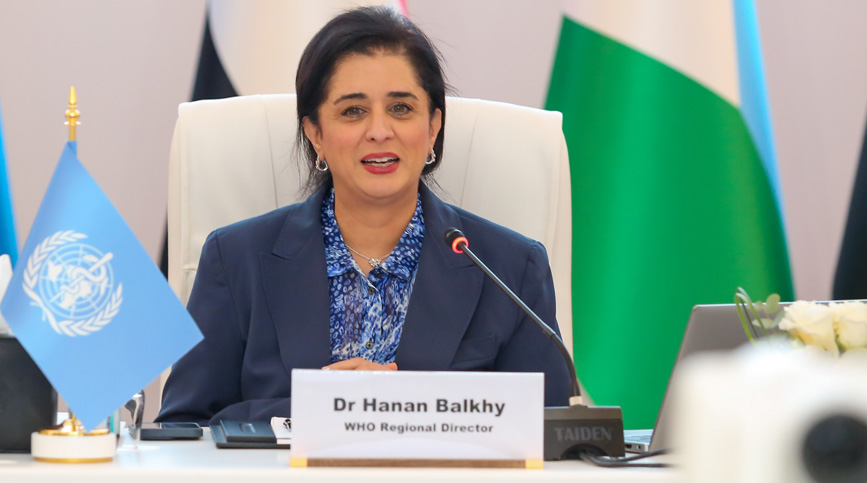
17 October 2024
Doha, Qatar
Your Excellencies,
Media colleagues,
Distinguished guests,
I would like to welcome you to this press conference.
We have just concluded the 71st session of the Regional Committee for the Eastern Mediterranean, which was held from 14 to 17 October 2024, and hosted by the State of Qatar.
Before I start, I would like to thank Qatar for their generous hospitality and excellent organization.
I also thank their Excellencies the ministers of health, heads of delegations and delegates for their dedication, wisdom and knowledge. We have enjoyed exceptionally rich and productive discussions throughout the past four days.
The Regional Committee session was held against the backdrop of emergencies that unfortunately affect half of the countries of the Region. We are all acutely aware that precious lives are being lost every minute.
From the 12-month war in the Gaza Strip to conflicts in Lebanon, Sudan and Yemen and prolonged crises in Afghanistan, Somalia and other countries – our Region is facing unimaginable and unacceptable tragedy and suffering.
The theme of the session, “Health Beyond Borders”, reflected the strong commitment of all our Member States to work together to ensure that every single person in the Region can enjoy their fundamental human rights to life and health – no matter their location, nationality, economic or social affiliation.
The Regional Committee is WHO’s main governing body in the Eastern Mediterranean. This annual session is an essential opportunity for leaders and policy-makers from Member States to join partner organizations and WHO experts to consider key issues.
Naturally, much of our time was spent discussing emergencies and other challenges, but we were also able to celebrate numerous successes in every country, and across many different areas of public health – from the tremendous growth of our regional Healthy Cities programme to some world-beating achievements in tackling communicable diseases such as hepatitis C, leprosy and malaria.
Coming together for these annual sessions is a great chance to share experiences, inspiration, ideas and best practices.
This was my first Regional Committee since I became Regional Director in February.
I was pleased to be able to present WHO’s major strategic plans for our work in the Region, including a new regional strategic operational plan and three flagships initiatives.
The strategic operational plan will guide our work with countries for the next four years, while the flagship initiatives will help to accelerate progress in three critical areas: expanding access to essential medicines, vaccines and medical products; investing to improve the production, employment and retention of health workforce in the Region; and stepping up public health action on substance use.
I am delighted that Member States voiced their strong support for these plans, and they also provided much wise advice and feedback.
We also discussed technical papers on four major health issues:
a new operational framework for addressing physical trauma in humanitarian settings;
a new regional action plan to enhance mental health and psychosocial support in emergencies;
action to tackle the deadly threat of antimicrobial resistance (AMR) in the Region; and
harnessing the power of digital technology to improve to health information systems and health care.
And we had a very full programme of other discussion, briefings, side events and special events.
I encourage you to look at the documents on the Regional Committee website. There is a wealth of information there.
Our big meeting has concluded successfully, but our work is just beginning. I am looking forward to pushing on with the technical agenda endorsed by the Committee.
So we say goodbye to our friends, colleagues and partners today – but we will be in touch with them again soon, and we will work closely together to make our shared vision a reality.
Thank you.


